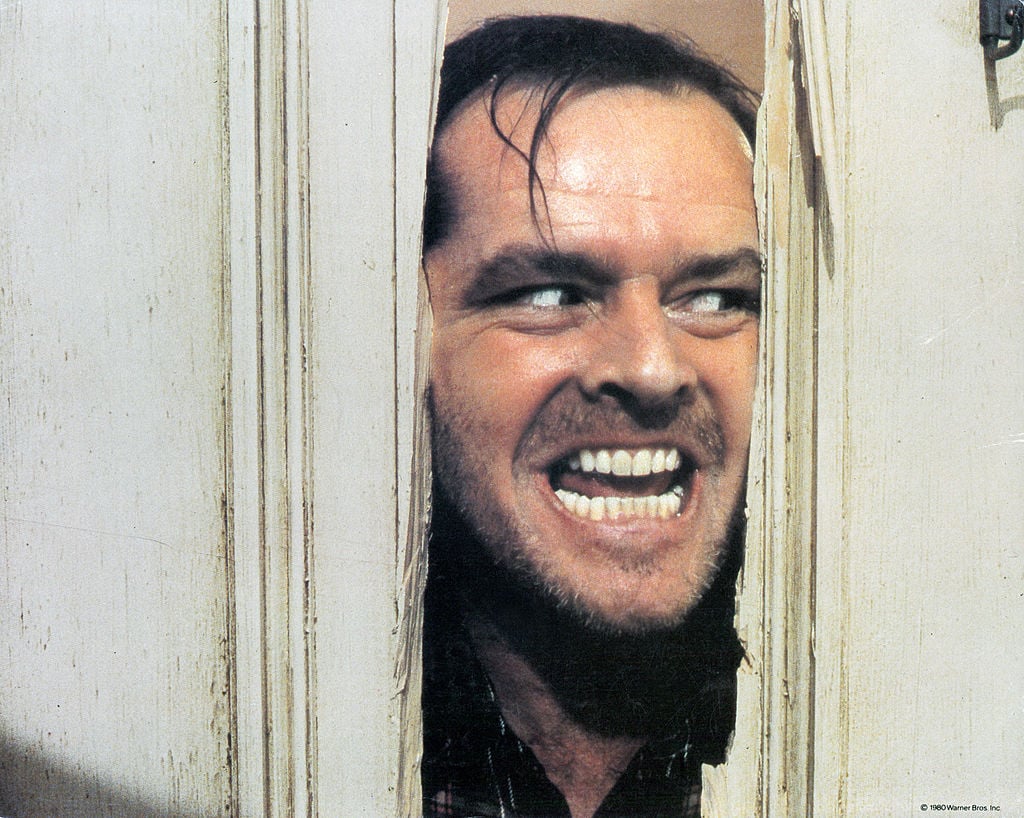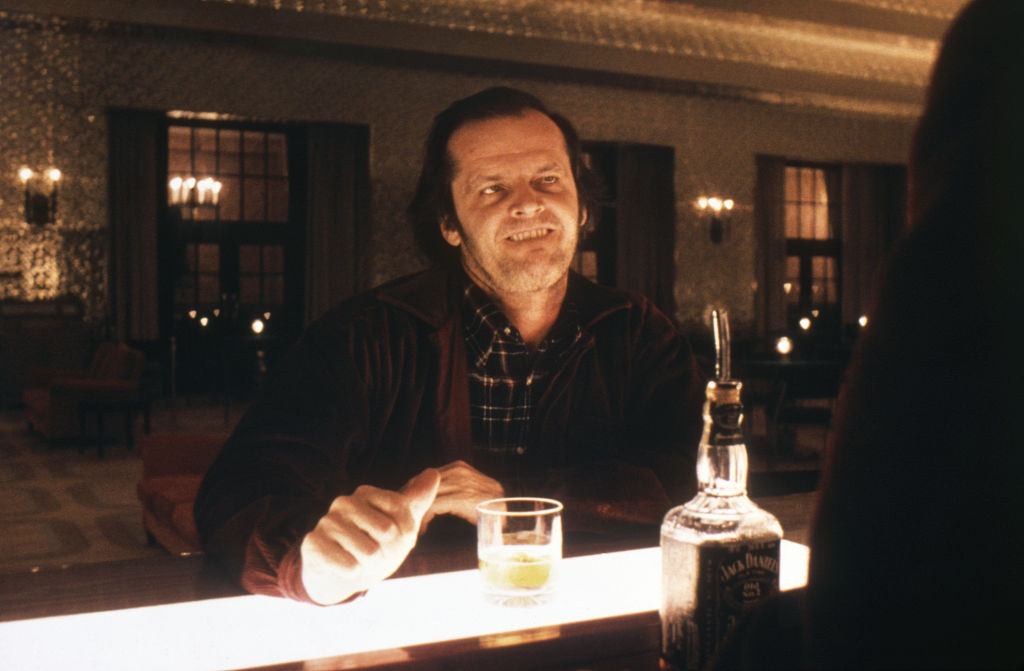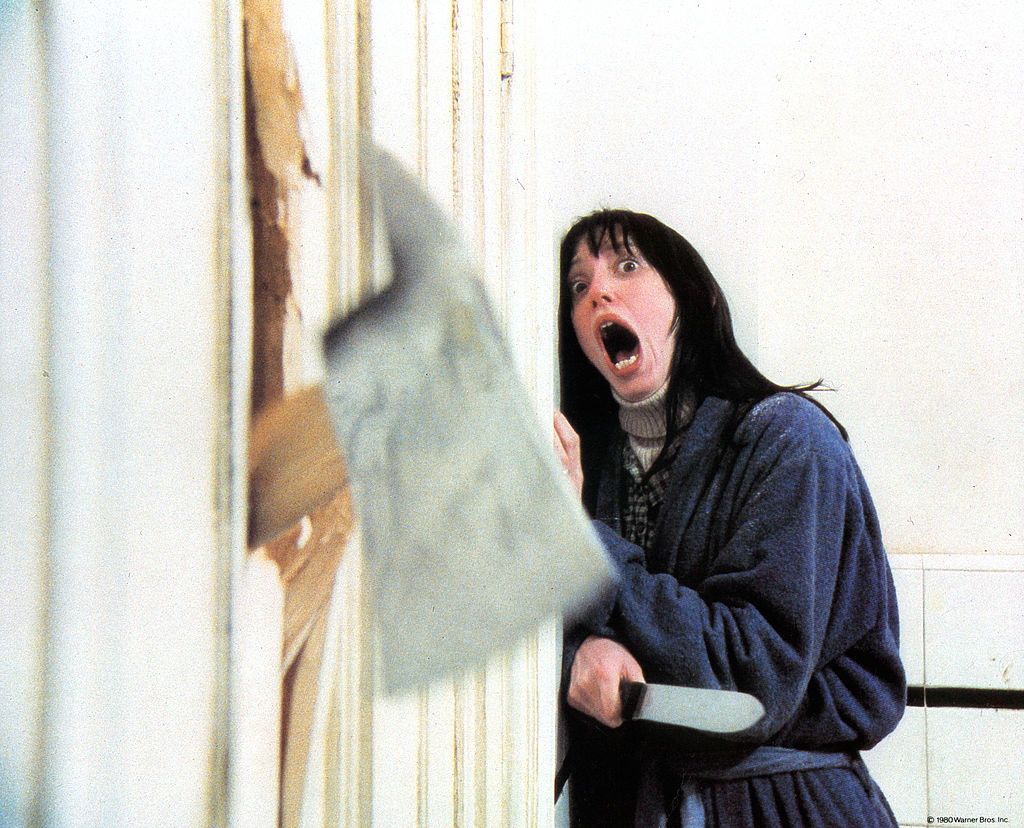‘The Shining’: What Inspired the Movie Besides Stephen King’s Book
Stanley Kubrick’s The Shining is a classic horror film if there ever was a classic horror film. Many fans of Stephen King’s original novel know the film deviates considerably from the book. Part of this is because Kubrick’s The Shining took inspiration from sources other than King’s book.
Kubrick wasn’t terribly concerned with staying true to King’s vision and incorporated ideas from other horror fiction. These different influences add up to a film that isn’t like any other. Here’s how obscure American filmmakers and avant-garde Austrian authors inspired Kubrick’s The Shining.

‘Eraserhead’
David Lynch’s Eraserhead is known for being one of the most bizarre horror films ever. From its unconventional lot to its bizarre aesthetic to its uneasy mix of humor and scares, it’s certainly not a film for everyone. Above all, it did find an audience. And one member of its audience was Kubrick.
Eraserhead was Kubrick’s favorite film. That’s really saying something, as Kubrick is perhaps the most acclaimed director who ever lived. Kubrick screened Eraserhead for the cast and crew of The Shining. He wanted to use Lynch’s film to put the cast and crew in the proper “mood” to make The Shining.
There are a million parallels between the two films, including a focus on fractured family dynamics, a man who wants to murder his son, and impressionistic use of Tin Pan Alley music. More than anything, the similarity between the two films is that they’re just plain terrifying.
Franz Kafka

Critics rarely classify Franz Kafka as a horror author, but his surreal tales of alienation are undoubtedly horror tales. It only makes sense that The Shining would take influence from his books. Oddly enough, Kafka’s writings inspired The Shining’s decor.
Kubrick said Kafka would write about bizarre happenings in lowkey, matter-of-fact language. He felt The Shining should emulate this quality of Kafka’s books through its set design and in fact it does. The Overlook Hotel in the film could have been a banal haunted house with cobwebs and Gothic architecture. However, its normal, even pretty aesthetic creates a distressing and fascinating contrast to the events of the film. In the same vein, the restrained prose of Kafka’s books contrasts with their fantastical stories.
Stephen Crane

Stephen Crane was a novelist and short-story writer mostly known for his slender classic The Red Badge of Courage. It was one of his lesser-known works, however, it did influence The Shining – albeit indirectly. Crane’s story “The Blue Hotel” served as the basis for an episode of the television series Omnibus. Like its source material, the episode centered on a pair of card players. One player, a paranoiac, kills the other because he thinks his victim is cheating him. The story initially makes you think the paranoiac isn’t being cheated, but he actually is.
Kubrick said the story dynamics the aforementioned episode of Omnibus influenced The Shining. “You think the point of the story is that his death was inevitable because a paranoid poker player would ultimately get involved in a fatal gunfight. But, in the end, you find out that the man he accused was actually cheating him. I think The Shining uses a similar kind of psychological misdirection to forestall the realization that the supernatural events are actually happening.”
Also see: Why All Your Theories About ‘The Shining’ Are Wrong


